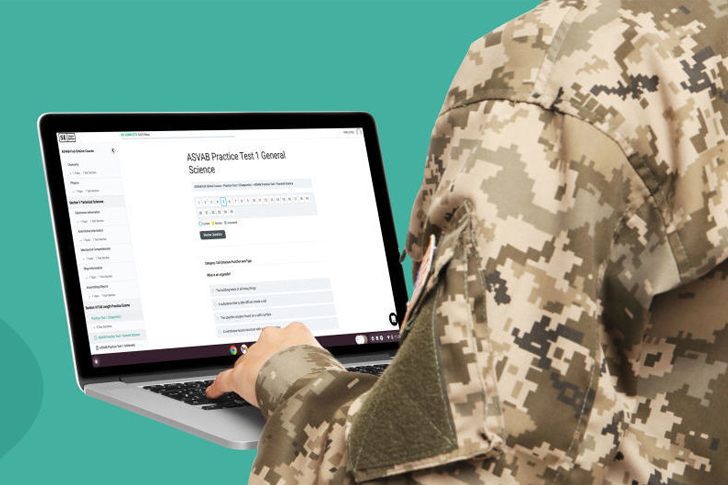Guidance and Resources for ASVAB Preparation: Utilizing Practice Tests
The Armed Services Vocational Aptitude Battery (ASVAB) is a test used by the United States military to determine qualification for enlistment and to help potential military candidates identify the military jobs and career paths most suited to their skills. Comprehensive preparation is vital not only to ensure success on the ASVAB but also to help candidates achieve the breadth of career options and opportunities available in military service. This article aims to provide crucial guidance and resources for ASVAB preparation, focusing on the pivotal role of practice tests throughout the study process.

Understanding the ASVAB Structure and Content
The ASVAB consists of multiple subtests, each designed to assess different areas of knowledge and skill. These subtests are General Science (GS), Arithmetic Reasoning (AR), Word Knowledge (WK), Paragraph Comprehension (PC), Mathematics Knowledge (MK), Electronics Information (EI), Auto and Shop Information (AS), Mechanical Comprehension (MC), and Assembling Objects (AO). The scores from these tests are compiled to create your Armed Forces Qualifying Test (AFQT) score, which determines your eligibility to enlist in the military and may affect the types of jobs you qualify for.
The Importance of High Scores
While the minimum AFQT score required varies depending on the branch of military service (for example, 31 for the Army and 50 for the Air Force), aiming for a high score can dramatically expand one’s career opportunities within the military. Moreover, some highly technical roles may require qualifying scores on certain subtests, exemplifying the need for robust preparation across all sections.
The Role of Practice Tests in Effective ASVAB Preparation
Among the most effective tools in preparing for the ASVAB are practice tests. These tests serve multiple functions. Firstly, they help familiarize candidates with the format and types of questions they will encounter, reducing test-day anxiety. Secondly, they provide immediate feedback, identifying areas of strength and weakness. According to educational research, consistent testing can improve retention of material and help focus subsequent study efforts efficiently.
Choosing the Right Practice Tests
It’s critical to choose high-quality practice tests that accurately reflect the content and structure of the ASVAB. Official practice tests provided by the U.S. military are an excellent resource, available for free on many military recruitment websites. Additionally, reputable publishers and educational organizations offer practice tests and prep books that can be helpful. It’s beneficial to consider resources that provide detailed answer explanations, enabling a deeper understanding of each question and the logic behind the correct responses.
Incorporating Practice Tests into Your Study Routine
How frequently should you take practice tests? This depends on your study timeline and current performance level. Starting with a diagnostic test is a helpful baseline. From there, integrating regular practice tests into your study regimen can track your progress and adjust your study focus accordingly. As you approach your test date, increasing the frequency of practice tests can help build confidence and improve your test-taking stamina.
Analysis and Adaptation: Learning from Practice Tests
After taking each practice test, spend ample time reviewing your results. Analyze which types of questions were missed and why mistakes were made. Was it due to a lack of knowledge, misunderstanding the question, or a simple error? This reflection can direct your study towards subjects that need more attention or remind you to read questions more carefully.
Supplemental Resources for Comprehensive Preparation
Beyond practice tests, consider other study aids such as study guides, flashcards, group study sessions, and even mobile apps designed for ASVAB preparation. Online forums and social media groups can offer support and insights from others who are also preparing for the ASVAB. Furthermore, instructional videos can provide explanations and tips that might be more digestible compared to traditional reading materials.
Realistic Practice: Simulating the Testing Environment
To make your practice as effective as possible, try to simulate the actual test environment when taking practice tests. Find a quiet place without distractions, time yourself as you would be during the actual test, and avoid using aids unless they are permitted in the actual test. This method can help reduce anxiety on the actual test day and improve your ability to perform under timed conditions.
Conclusion: The Power of Persistence in ASVAB Preparation
Success in the ASVAB is attainable through diligent study, the strategic use of practice tests, and leveraging various supplemental resources. Starting early and maintaining a consistent preparation schedule can significantly enhance your performance on the actual test. Remember, every point you score higher on the ASVAB not only increases your chances of qualifying for enlistment but also broadens your prospective career paths in the military. Aim high, prepare thoroughly, and your efforts will lay down the path to achieving your military aspirations.







Recent Comments